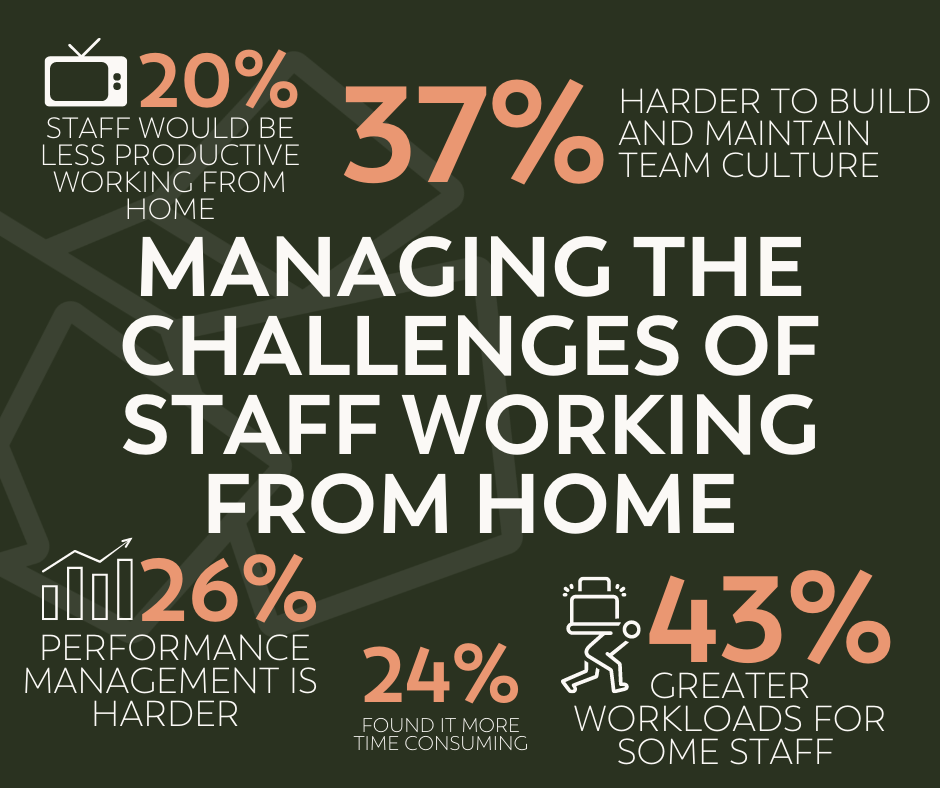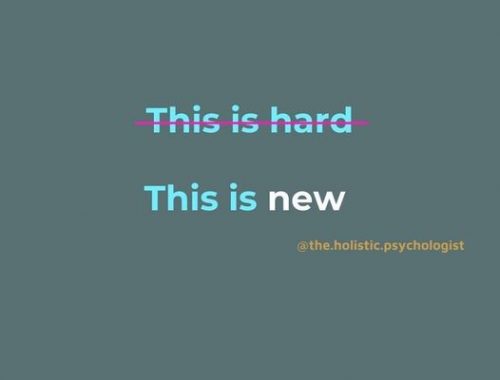Managing the challenges of staff working from home
A few weeks ago, I shared the results of a survey I ran across my network, understanding current perceptions into working from home, the issues and the opportunities and what you need to be successful. If you missed it, you can find it on my website.
In the survey, I wanted to understand what managers were concerned about managing staff in this new hybrid world of work. If this was what staff management will look like – performance discussions on Teams, delegating work via chat, brainstorming in breakout rooms – what is worrying managers?
What I found was that managers felt like they had the skills to work remotely but not necessarily the frameworks to understand how to do it well.

Flexibility results in greater workloads for some people
The number one concern for managers was that flexibility would lead to greater workloads for some staff (43.1%).
The challenge of working from home is knowing when to turn it off. It’s easier when you have to leave to make dinner or pick up the kids, but when you don’t need to ‘leave the office’, the flexibility of working from home can lead to longer hours. As a manager, you can see that your staff send you emails at 9pm, but it’s harder to get them to stop the habit.
Without boundaries or policies around flexible work, this will be difficult to manage and will lead some staff to working longer hours and, in some cases taking on greater workloads.
Staff would be less productive working from home
In the converse, managers were also concerned that some staff would be less productive working from home (19.6%), possibly leading the people above to pick up the load.
This speaks to a lack of understanding of how to measure productivity when you can’t see what your staff are doing. When you have staff who aren’t working on task-based activity where you can count the outputs (almost everyone in the public service), it can be hard to measure the value of work outcomes to hours ratio. How long should it take for someone to think through a new policy outcome or a new recommendation for the Minister to consider? How long does it take to develop a new communication strategy or research a new HR policy?
This also aligns with another concern for managers: it is harder for managers to undertake performance management with staff (25.5%).
Our performance management systems need to be reviewed and reconsidered based on our new way of working.
The KPIs we relied on a year ago are no longer as relevant in our new work environment. Without the right understanding of productivity, it’s difficult to know how individuals on your team are really doing. Our perception of productivity needs to move from deliverables to effective communication, self-discipline and collaboration. Focus on how work gets completed rather than just the output alone.
It is harder to build the culture in the team and create an inclusive environment
Another key concern for managers was building and maintaining team culture – 37.3% of managers thought this was a challenge in leading a team.
Again, our old paradigm is about team meetings, lunches, and other social activities, and we need to shift this thinking about how we build a team’s culture in a hybrid environment. Does your culture now need to focus on being inclusive – ensuring everyone can join and contribute at team meetings, no matter where they are. Is it about creating open communication where people feel comfortable raising issues, challenging each other no matter how it is done.
Many managers felt they lost the personal connection with their staff (15.7%) when working in the office full time. It’s true remotely you don’t get the ‘walking to a meeting’ chat or the ‘wanna grab a coffee and update me on your life’ conversation. You miss some of the connection you get through casual interactions. You need to work harder to create connections – pick up the phone instead of an email, meet in a local park for your meeting or organise to have a virtual coffee where you don’t talk work. There is no manual for this. You need to find a way that works for you.
It takes up more of my time
While not in the top three issues, the extra time required to manage a team remotely has been raised with me outside of the survey. 23.5% of managers were concerned about this in the survey, but I know more of you have found it draining.
As a manager during lockdown, there was a heightened level of responsibility to monitor and maintain employee wellbeing – checking in with staff, having more team meetings, organising social activities (virtual trivia anyone?). While you may have done this more informally in the office, now it was structured and a daily requirement on top of your normal workload.
As we move into a hybrid environment, it will continue to take up your time. Now you need to be “on” in person and ensure you are considering those who are working from home. No longer can you quickly gather everyone together for a team meeting. It needs to be planned and in a location that others can dial into. You can’t just duck out for lunch with the team when you only have 50% of the team in the office. Everything you do to communicate and engage with your team will need to be a conscious decision.
This “new way of working” is a tough gig and requires a rethink of how we think as managers. You will need to reset your expectations, think about the support you need from your supervisor and HR and how you can bring your team with you.

